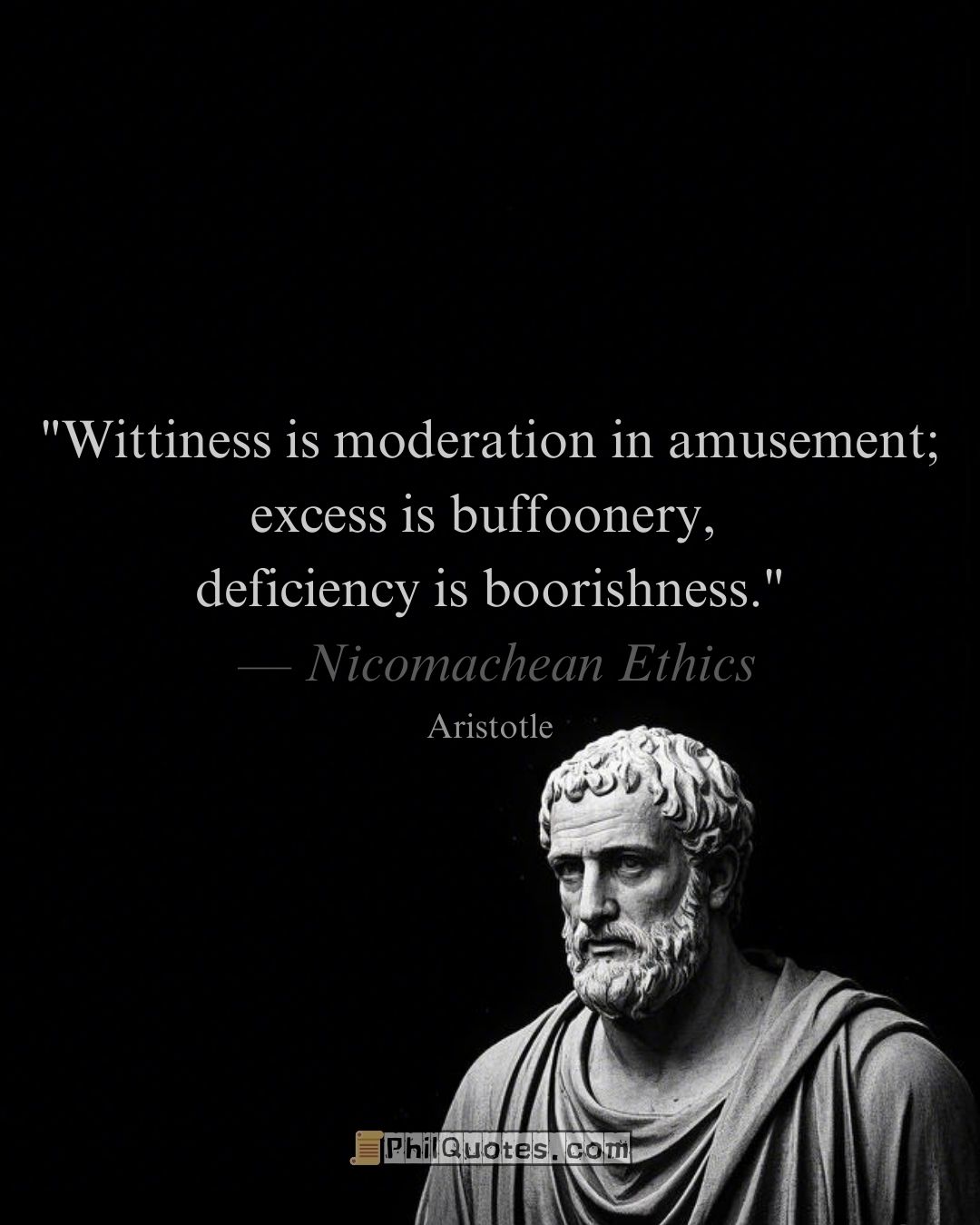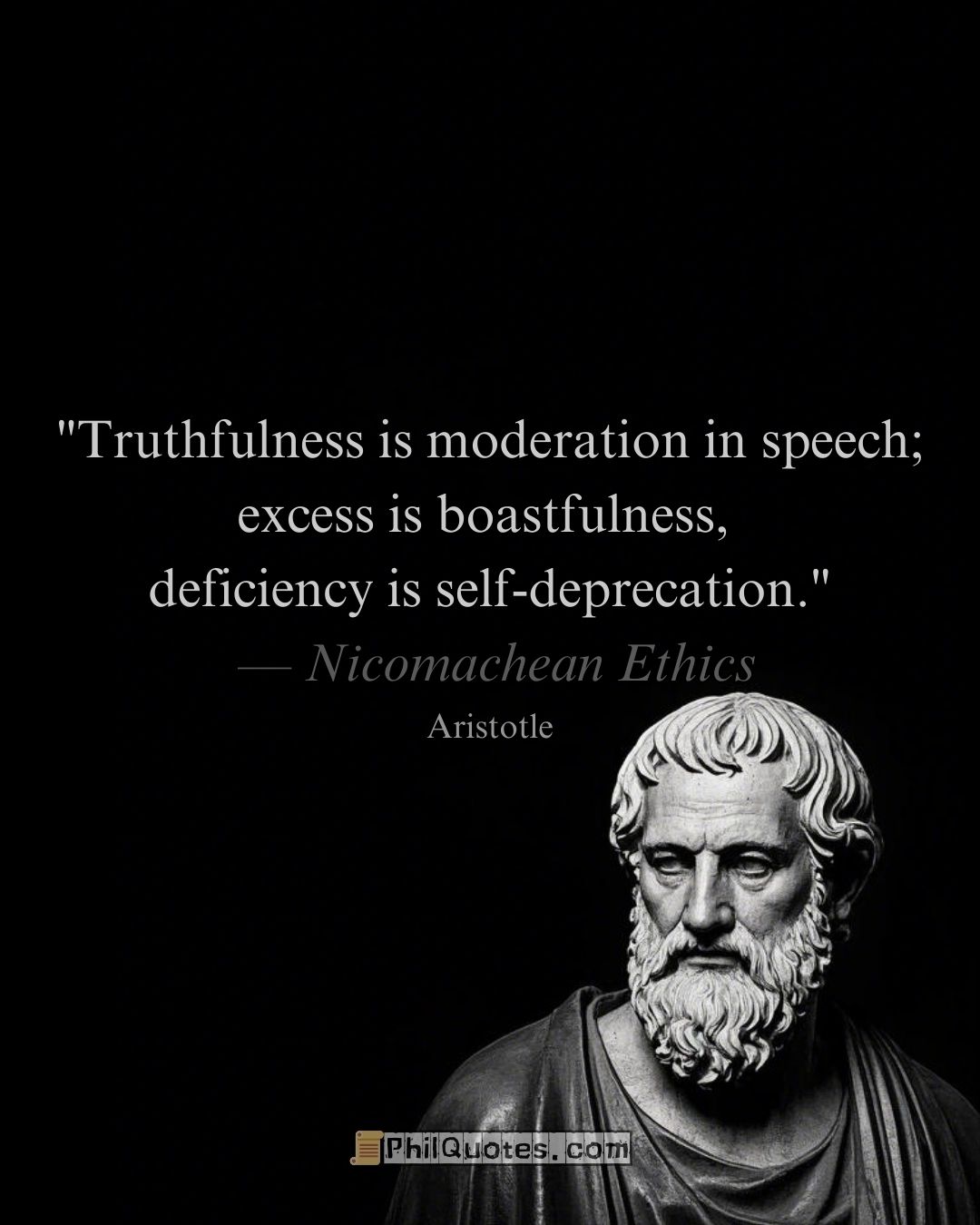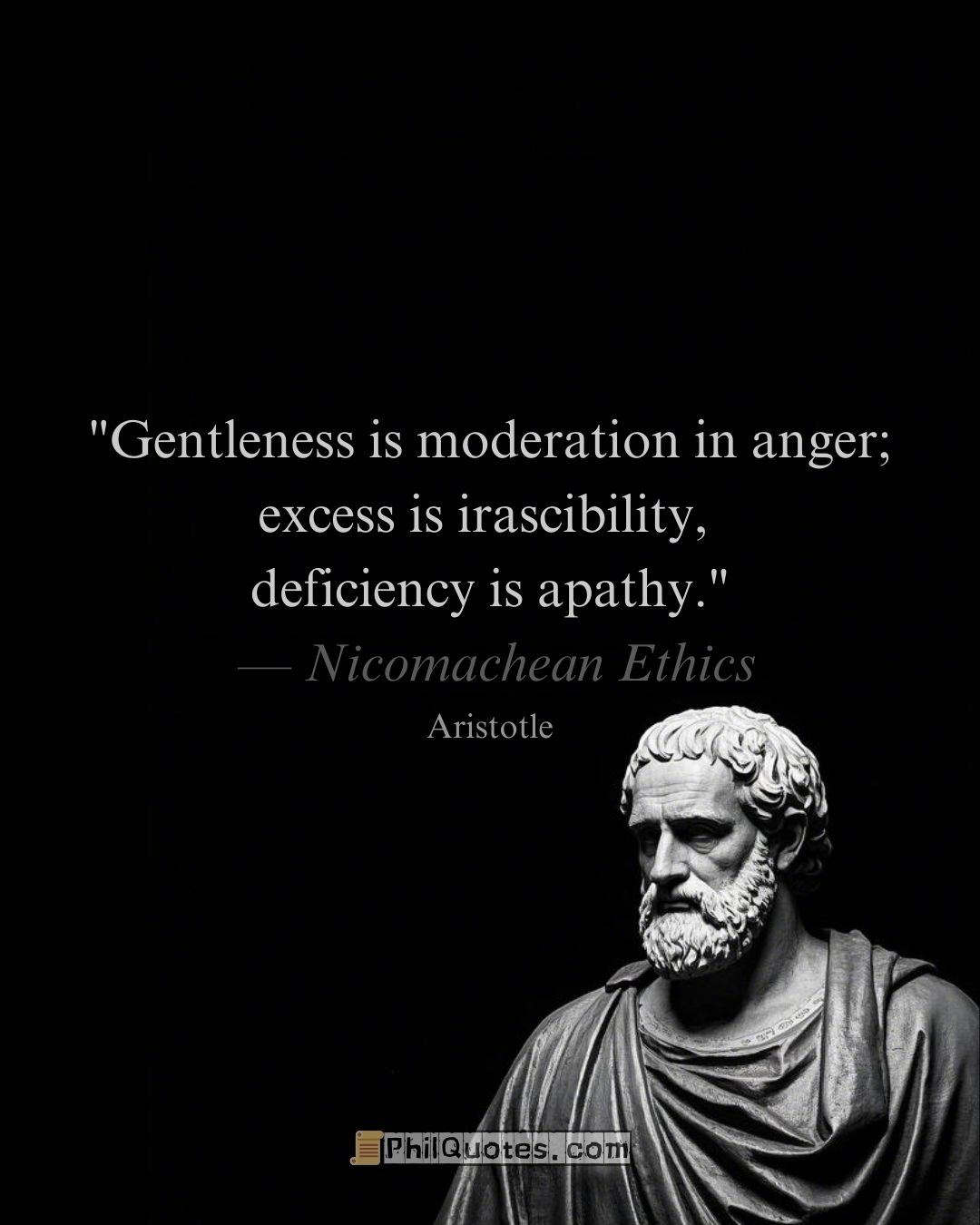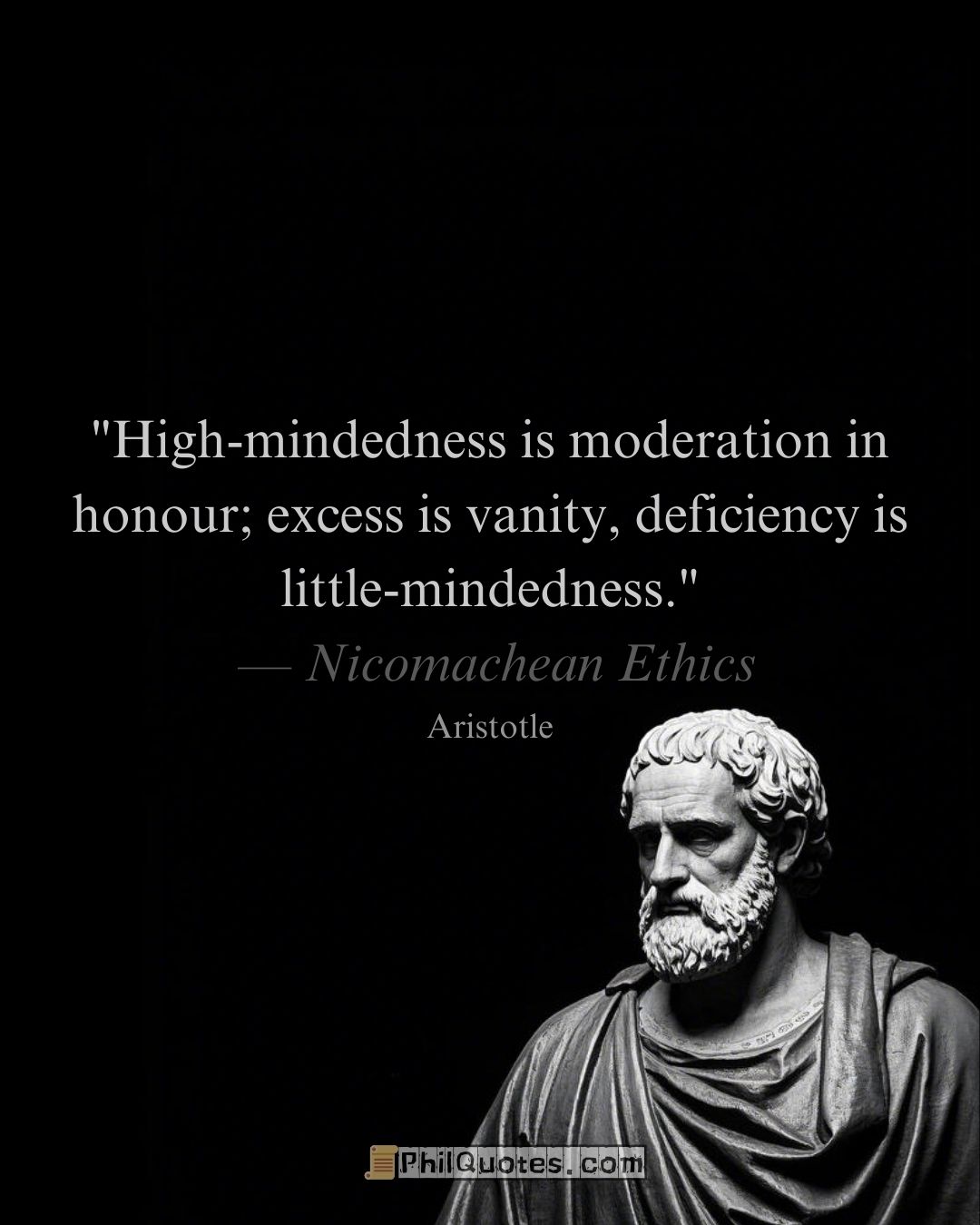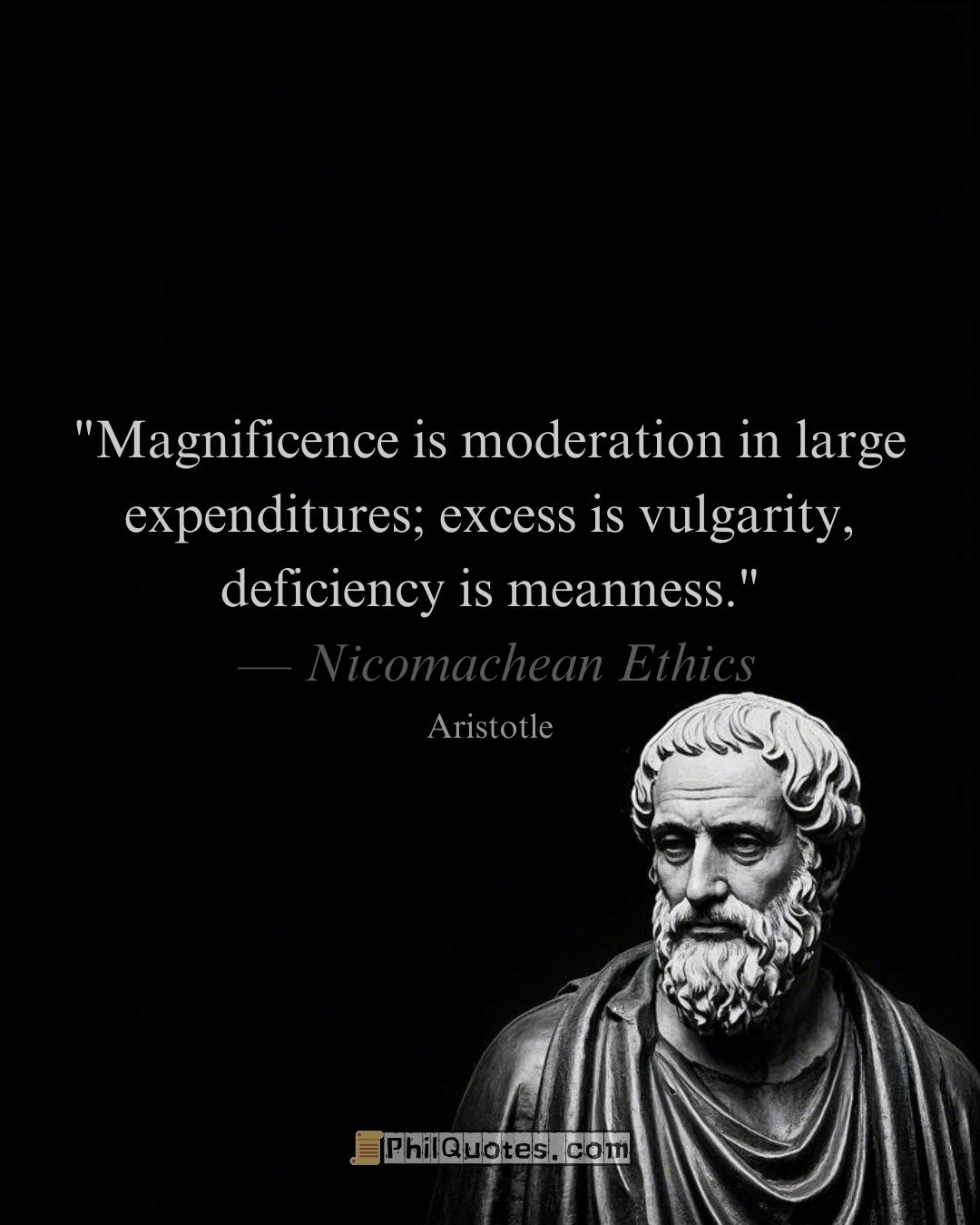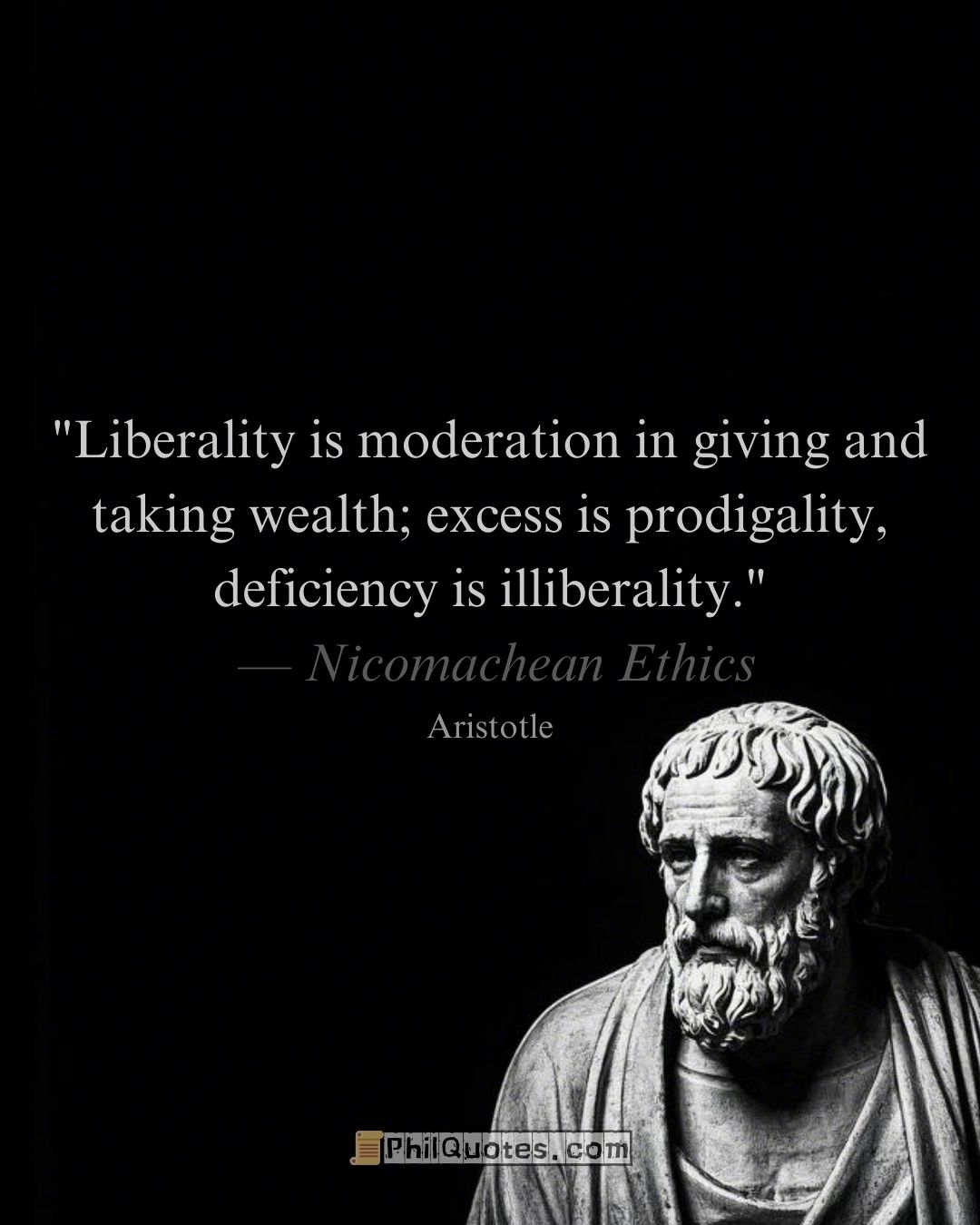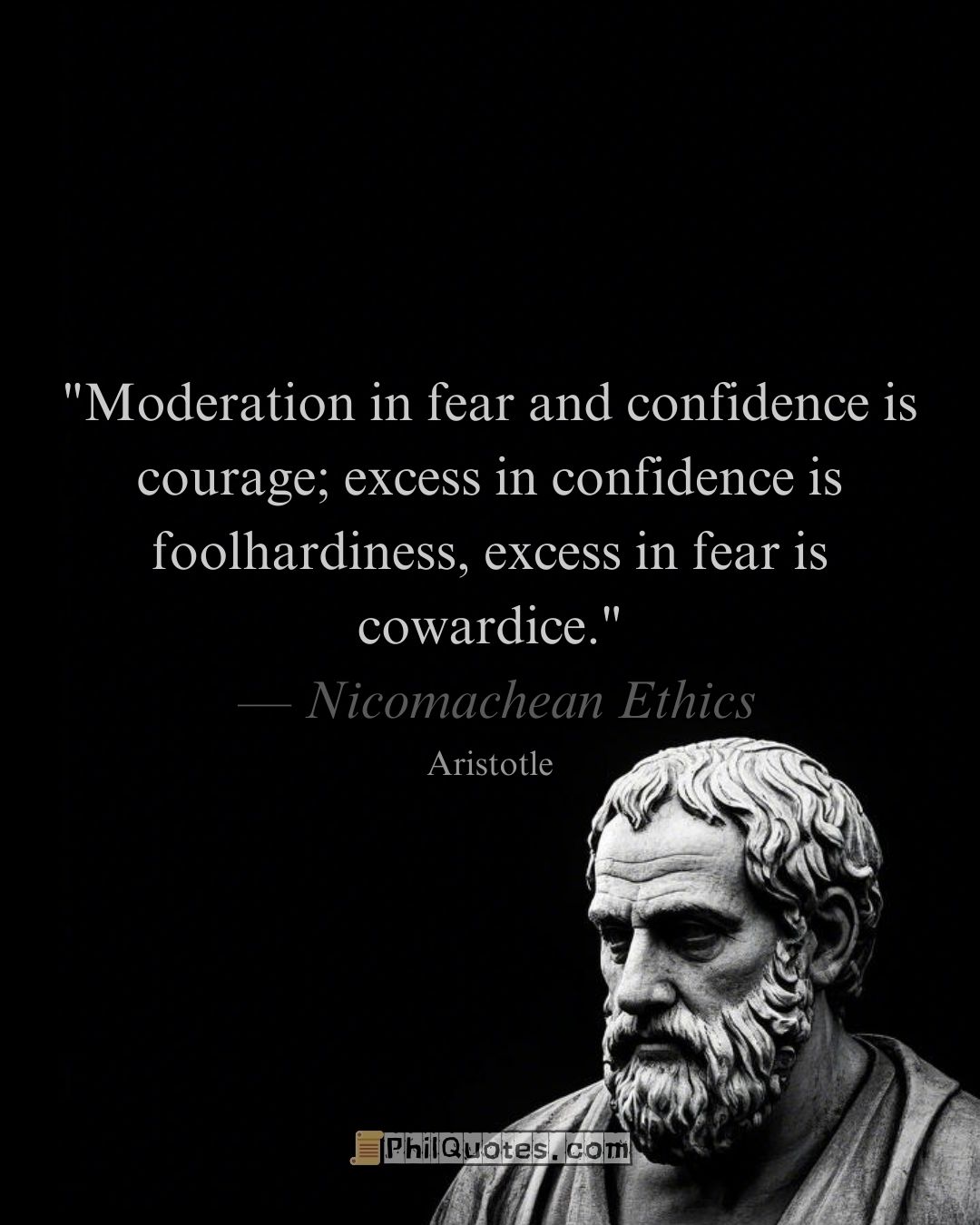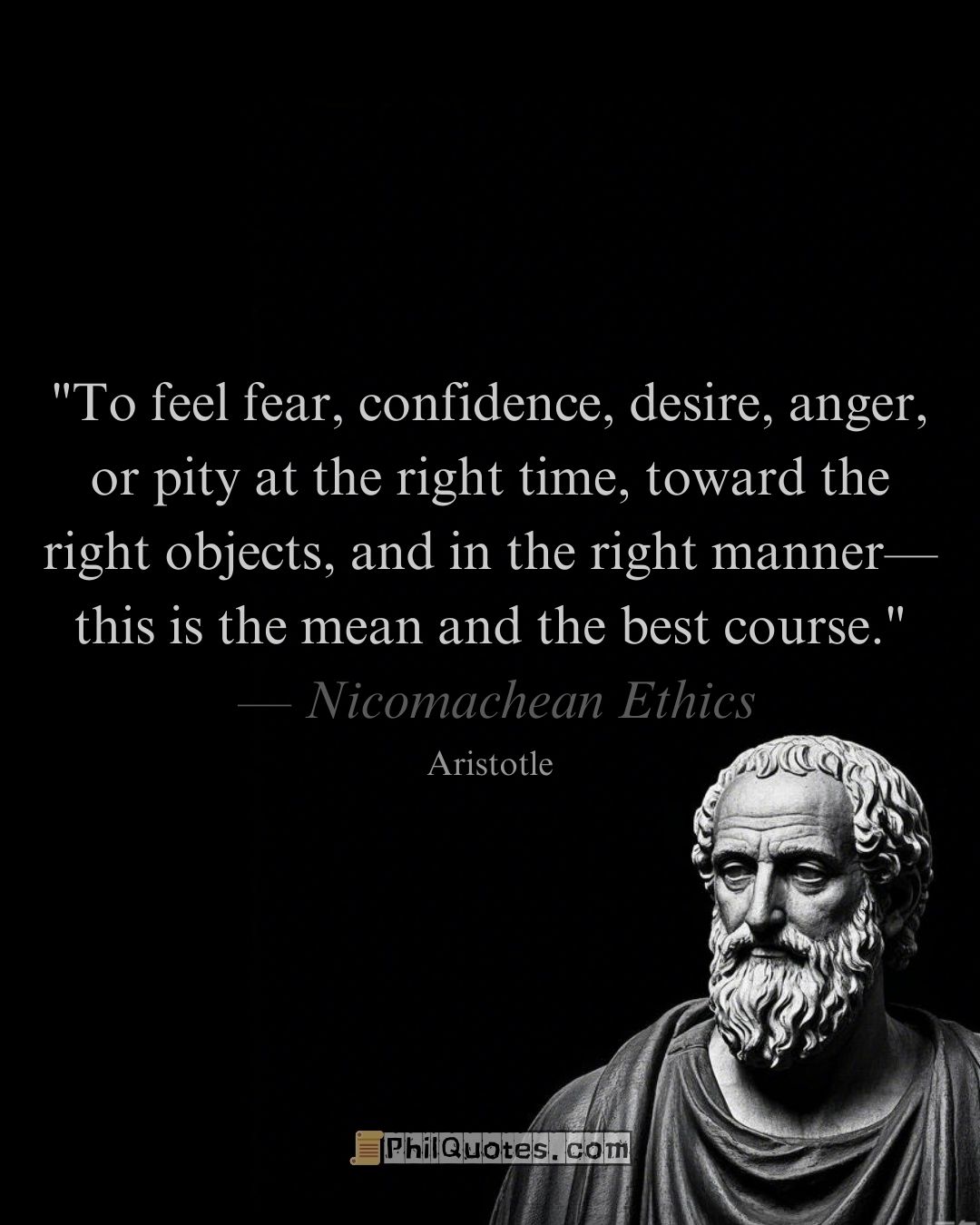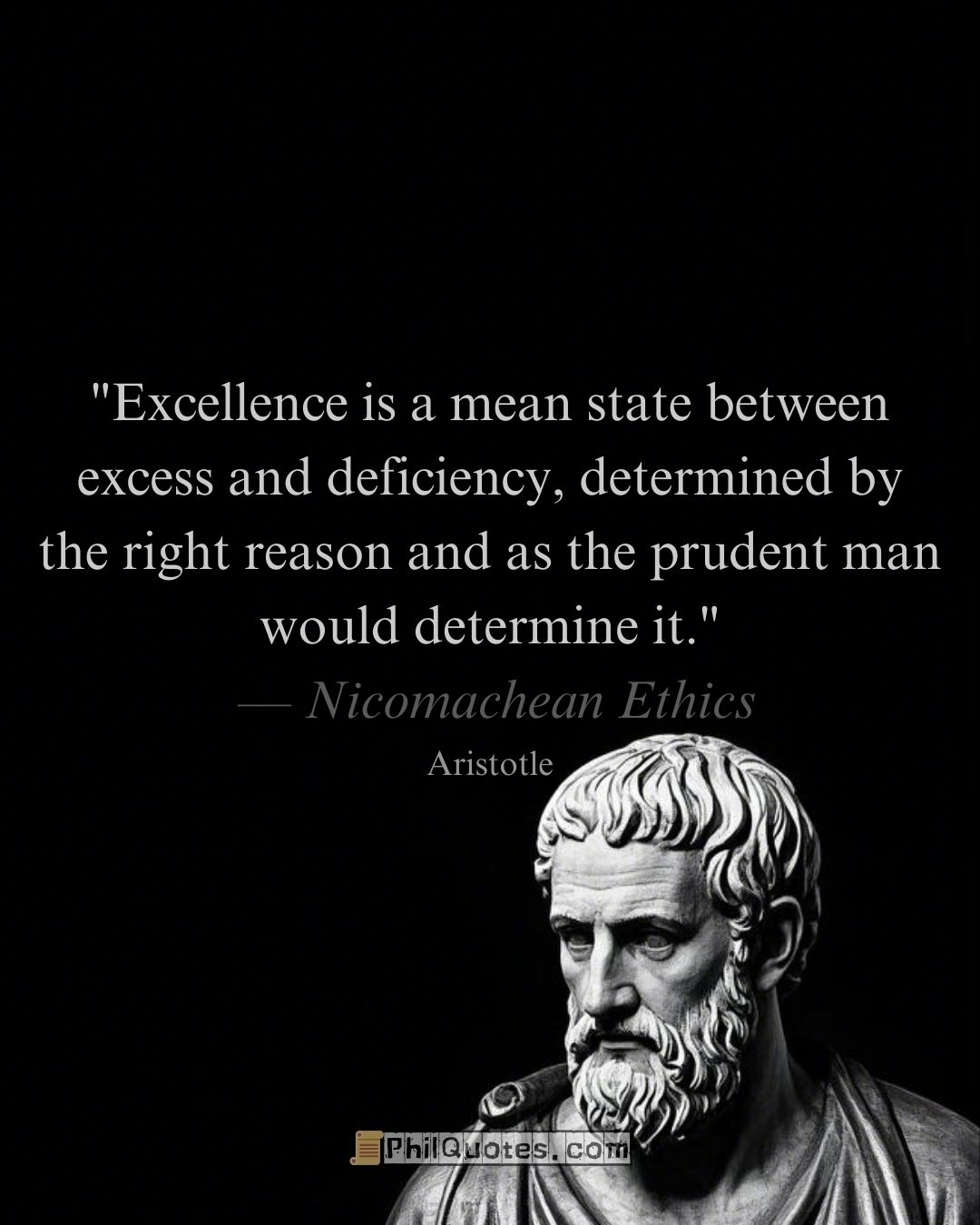Aristotle Nicomachean Ethics Quote: “Wittiness is moderation in amusement; excess is buffoonery, deficiency is boorishness.”
“Wittiness is moderation in amusement; excess is buffoonery, deficiency is boorishness.”— Aristotle, Nicomachean Ethics, Book II, Chapter 7(Translated by W.D. Ross) 🔍 Core Idea Humor is your social volume knob — crank it to 11 (🤡 buffoonery) and you’re obnoxious; mute it (🦉 stoicism) and you’re dull. Ethical wit works like TikTok’s “sound balance” feature, … Read more
